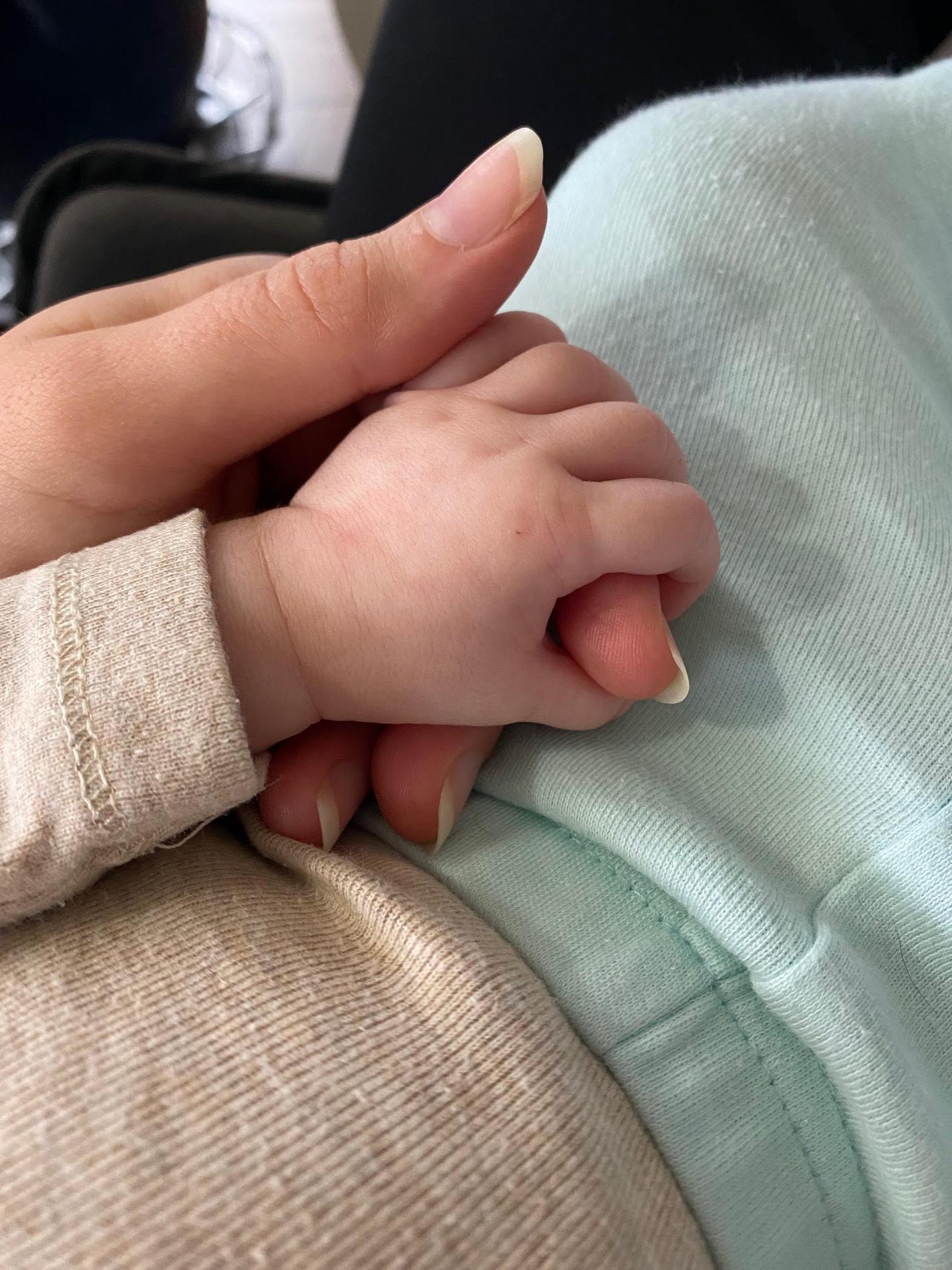
Raquel Griffin MSW RSW
Jan. 18, 2023, noon

At first, I thought I was successful in combating ED thoughts and the diet mentality that followed the birth of my child. Sure, my ear would initially be tickled with ED whisperings of fatphobia and diet culture. But just as quickly as they appeared, self-compassionate and comforting hums would replace them. But as time passed, I began to feel more stress about my new body shape and size. I had a number of friends and acquaintances who gave birth very close to when I did, and I really began to struggle with body comparison. Why was my body larger than theirs? Why did it seem like they were restored to their pre-pregnancy body sizes when I wasn’t? These fatphobic thoughts and expectations hung like a cloud as I squeezed my body into my too-small clothes.
At 4 months postpartum, I was horrified to come across a post in my social media feed from my local hospital’s pregnancy unit for an upcoming Q&A on C-sections. The post included a naked, very thin, flat-tummied, stretchmark-free, White person, from the navel down to the thighs. Laying on top of this body was a newborn baby, peaceful in slumber, blocking the birthing person’s labia but also positioned low enough down to wonder how this person had no pubic hair. It was a completely unrealistic picture of any body, let alone a postpartum body. I was so upset that a reproductive-focused medical facility was perpetuating such a harmful body standard (not to mention a weirdly sexualized one). I felt shame about my postpartum body and at times bought into this diet-culture idea that my body should be getting smaller the further away I got from my child’s birth date.
Pregnant people are often highly encouraged to try breast/chestfeeding at any cost (a whole separate conversation) and one of the “benefits” often included is weight loss. I hate to admit it… but when breastfeeding was going well with my baby I was partially relieved, because in the back of my mind, I thought breastfeeding would help prevent me from needing to adjust to a drastically new and different body. But, I was wrong. I was experiencing shame that my postpartum body was “too large” or differently-shaped. And, then I had shame about my fatphobia-induced shame, as that was not aligned with my values.
It’s a strange thing to hold reverence for the body that withstood such a major medical event and brought my treasured child into the world, while also resenting the bodily evidence left behind. To admire the softness and smoothness from stretched skin where my child was held in their first home, then to shortly thereafter hold disgust for new skin/fat folds and stretch mark scribblings. The good news is, with a lot of work, over time my relationship to my new body as a result of pregnancy and childbirth is becoming easier. If I’m being honest, I’m not yet at a place where I like my postpartum body and I’m willing to accept that maybe I will never be. But, I am at a place where my feelings toward my body are much more neutral and compassionate. My body has been and is capable of great things. My body is worthy.
These are some of the things that have been helping me move toward body acceptance:
1) Remind yourself that eating is especially important during this time
Our bodies need energy in the form of food. Providing consistent and adequate nourishment following labour and delivery is extremely important—especially for postpartum bodies. The last thing your body needs right now is to have its starvation response triggered.
2) Respect your body by dressing in clothes that fit and are comfortable
Stop trying to squeeze into your old clothes. Wearing clothes that are too tight does not feel good.
3) Engage in re-embodying activities
With pregnancy, labour, child-birth, and breast/chest-feeding, there is a long period of time where you may feel like your body isn’t fully your own anymore. And, if you have a history of disordered eating and disembodiment, these feelings could be exacerbated. Where possible, engage in pleasurable activities that help you reconnect with your body in positive ways. For me, that was prioritizing walking, getting back to choir rehearsals and singing, and maintaining sexual intimacy with my partner.
4) Reject the Diet Mentality
Shortly after giving birth, I completed my Intuitive Eating Counselling Certification. Immersing myself in anti-diet values, principles, and scientific research really helped me to reject the diet mentality and ED thoughts as they arose.
Author Bio: Raquel Griffin MSW RSW
Raquel (she/her) has lived experience of recovering from an eating disorder and pregnancy after recurrent loss. She is also a Registered Social Worker and private practitioner therapist of Birch Stand Mental Health Services in Kjipuktuk (Halifax, Nova Scotia). She specializes in disordered eating, anxiety, depression, and grief. Raquel is currently the only therapist certified in Intuitive Eating Counselling in Atlantic Canada. If you are living in Nova Scotia or New Brunswick and are interested in Raquel’s therapy services, visit https://birchstand.ca/ or email Raquel@BirchStand.ca.
You can also follow Raquel on instagram (@BirchStandMentalHealth).

July 9, 2025, 3:47 p.m.